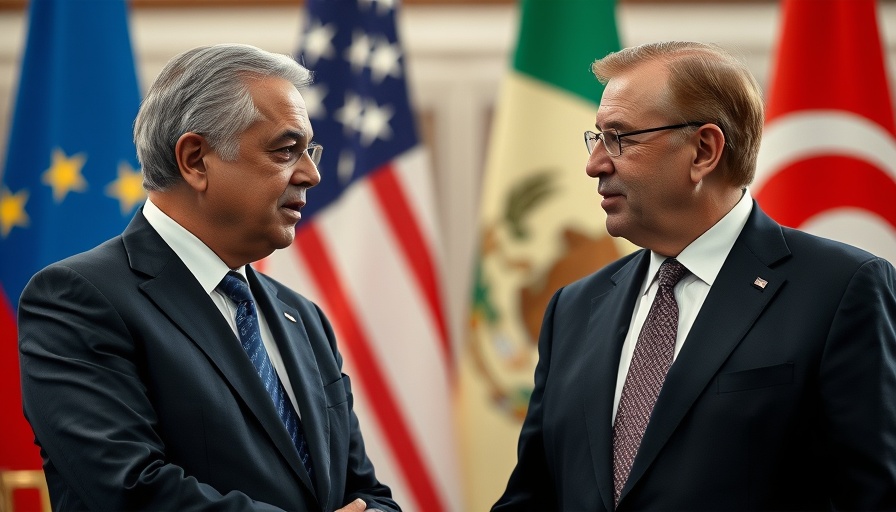
Trump's Tough Talks with Xi: Understanding the Impasse
In a recent statement, former President Donald Trump expressed his frustrations regarding negotiating with China's President Xi Jinping, labeling him as "hard to make a deal with." This remark comes at a critical point for both countries, as they strive to manage a complex relationship characterized by trade tensions, geopolitical rivalry, and economic interdependence.
The China-U.S. Relationship: A Historical Perspective
The U.S.-China relationship has evolved over decades, moving from engagement to increasing skepticism and rivalry. In the late 20th century, diplomatic efforts and economic partnerships characterized the interactions. However, as both nations have seen growing nationalism, the conversations have shifted significantly towards competition and strategic interests, prompting leaders from both sides to reevaluate their negotiation tactics.
Why Negotiations Have Become Difficult
Trump's comments underline a crucial issue: the fundamental differences in priorities between the two nations. For Xi, maintaining China's economic growth and global influence is paramount, while Trump has focused on protecting American jobs and reducing trade deficits. Add to this the rising tensions over human rights, technology theft, and military expansion in the South China Sea, and it's clear why negotiations have stalled.
The Impact on Businesses Globally
For the Bay Area business community, the implications of these diplomatic standoffs are profound. Local companies, particularly those involved in tech and venture capital, face uncertainties that can disrupt supply chains and impact investor confidence. According to experts, a continuation of such difficulties in negotiations could lead to increased tariffs and investment restrictions that affect startups and established firms alike.
Economic Forecasters Weigh In
Market analysts have been closely monitoring the trade talks, as the outcomes directly relate to broader economic trends. High-stakes negotiations often dictate the direction of global markets. With many Bay Area startups relying on Chinese manufacturing and sales, any escalation in tariffs could lead to a challenging environment for innovation and growth. Critical economic forecasts suggest that firms need to prepare for potential shifts in market dynamics.
Lessons from the Trade War: Strategies for Bay Area Businesses
In light of the unpredictable nature of U.S.-China relations, businesses must diversify their operations and consider building resilience against supply chain disruptions. Strategies may include seeking alternative suppliers, investing in local manufacturing, or even exploring new markets to mitigate risks associated with international conflicts. Additionally, understanding corporate social responsibility and its importance in today's market could influence customers’ perceptions and impact consumer behavior.
The Path Forward: Hope for New Negotiations?
Despite the current deadlock, there remains hope for future discussions. Some analysts advocate for renewed dialogue that addresses mutual concerns while finding common ground. Businesses, particularly in the Bay Area, can take the initiative by advocating for policies that promote bilateral cooperation in technology and sustainability. Engaging in initiatives that prioritize corporate partnerships can be beneficial, as mutual innovation can alleviate some tensions and lead to productive outcomes for both nations.
As negotiations continue to unfold, Bay Area entrepreneurs and executives must remain vigilant, adapting their strategies to align with evolving geopolitical conditions while pursuing growth opportunities in a fluctuating market.
 Add Row
Add Row  Add
Add 



Write A Comment